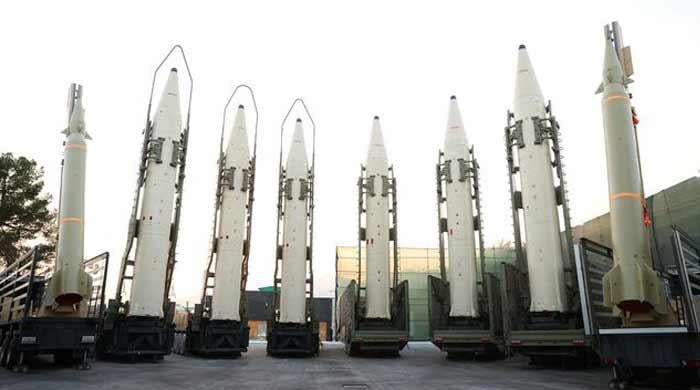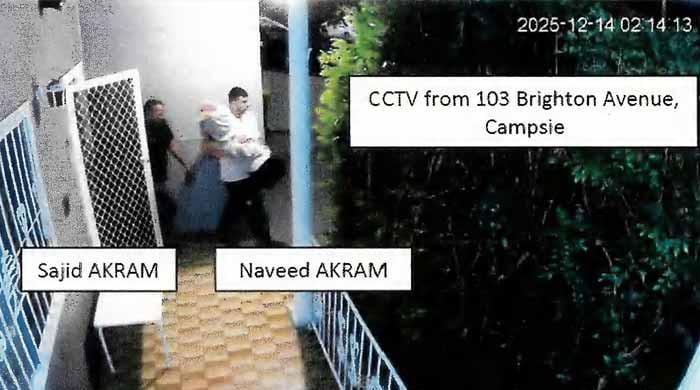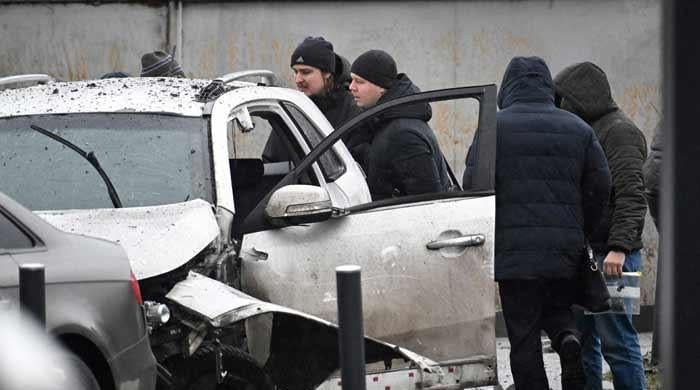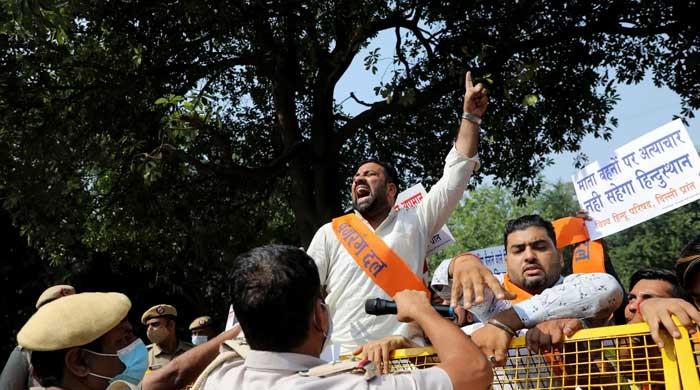Egypt rejects refugee inflow from Gaza, blames Israel for aid block
Longstanding peace between Egypt and Israel, established in 1979 following Camp David Accords. is now at risk
October 18, 2023
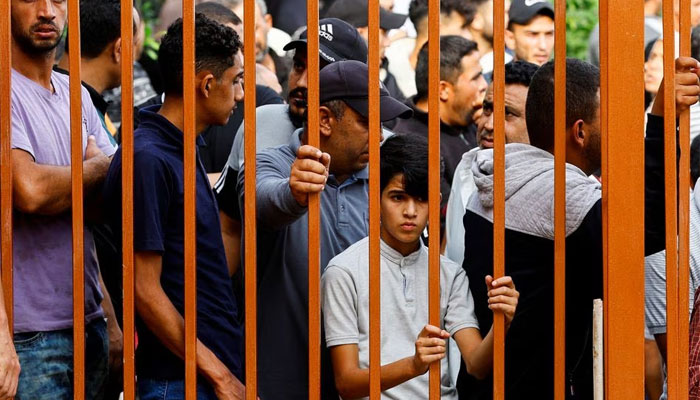
Egypt's President, Abdel Fattah al-Sisi announced on Wednesday that his country would not accept a large influx of refugees from Gaza, as he expressed concerns that it might set a precedent for the displacement of Palestinians from the West Bank into Jordan.
President al-Sisi made this statement following discussions with German Chancellor Olaf Scholz.
He attributed the failure to aid the 2.4 million people in Gaza to Israeli airstrikes on the Rafah crossing between Gaza and Egypt. In his words, "The displacement of Palestinians from Gaza to Egypt means the same displacement will take place for Palestinians from the West Bank into Jordan.
Subsequently, the Palestinian state that we are talking about and that the world is talking about will become impossible to implement because the land is there, but the people are not. Therefore, I warn of the danger of this matter."
This statement coincided with the 12th consecutive day of intense Israeli bombardment in Gaza, which was in response to a surprise cross-border attack by Hamas on October 7, resulting in the loss of over 1,400 lives, most of whom were civilians. Gaza is grappling with dire electricity, food, water, and fuel shortages.
The pressure has been mounting to allow aid to enter Gaza through Egypt's Rafah crossing, the only access point to the besieged territory not under Israeli control.
President al-Sisi clarified that Egypt did not close the crossing but cited ongoing developments on the ground and repeated Israeli bombings on the Palestinian side of the crossing as the factors preventing its operation.
This has led to hundreds of aid trucks waiting on the Egyptian side of the crossing, which has been bombed by Israeli aircraft on four occasions.
Chancellor Scholz emphasised that Berlin and Cairo are collaborating to expedite humanitarian access to the Gaza Strip.
Both leaders also expressed concerns about the potential for regional spillover and called for immediate international intervention to prevent a dangerous military escalation.
The longstanding peace between Egypt and Israel, established in 1979 following the Camp David Accords, is now at risk due to the possibility of a mass exodus of Gazans into Egypt's neighbouring Sinai Peninsula, which could become a base for terrorist operations against Israel. President al-Sisi stated that in such a scenario, Israel would have the right to defend itself and its national security, potentially leading to strikes on Egyptian territory.
Palestinian President Mahmud Abbas has also voiced concerns, comparing the displacement of Gazans to the "second Nakba," a reference to the expulsion of Palestinians during Israel's creation in 1948. Most of Gaza's population consists of refugees from that historical event.
Egypt has consistently rejected what it considers the transfer of Israel's responsibilities as an occupying power, including the obligation to ensure the safety of civilians living under occupation.
President al-Sisi proposed the Negev Desert in Israel as an alternative refuge for Gazans, suggesting that Palestinians could be relocated there until Israel completes its declared operation to eliminate armed groups in Gaza, with the possibility of their return at a later time.





